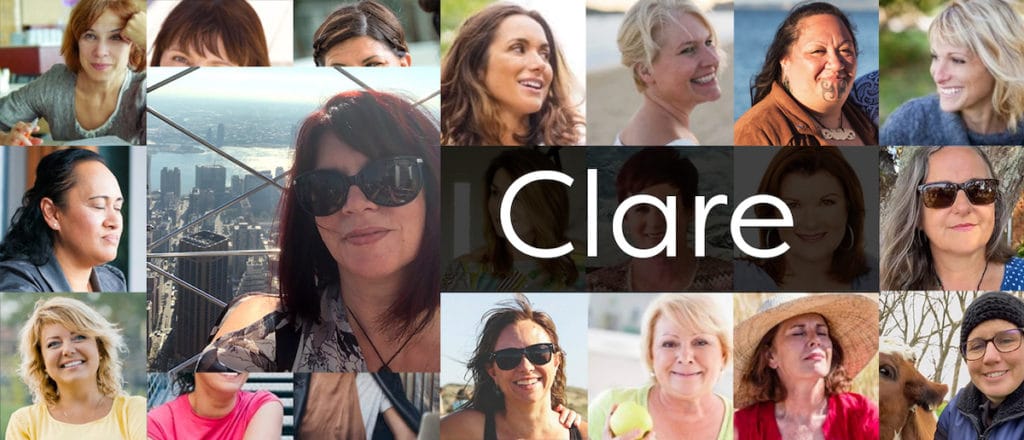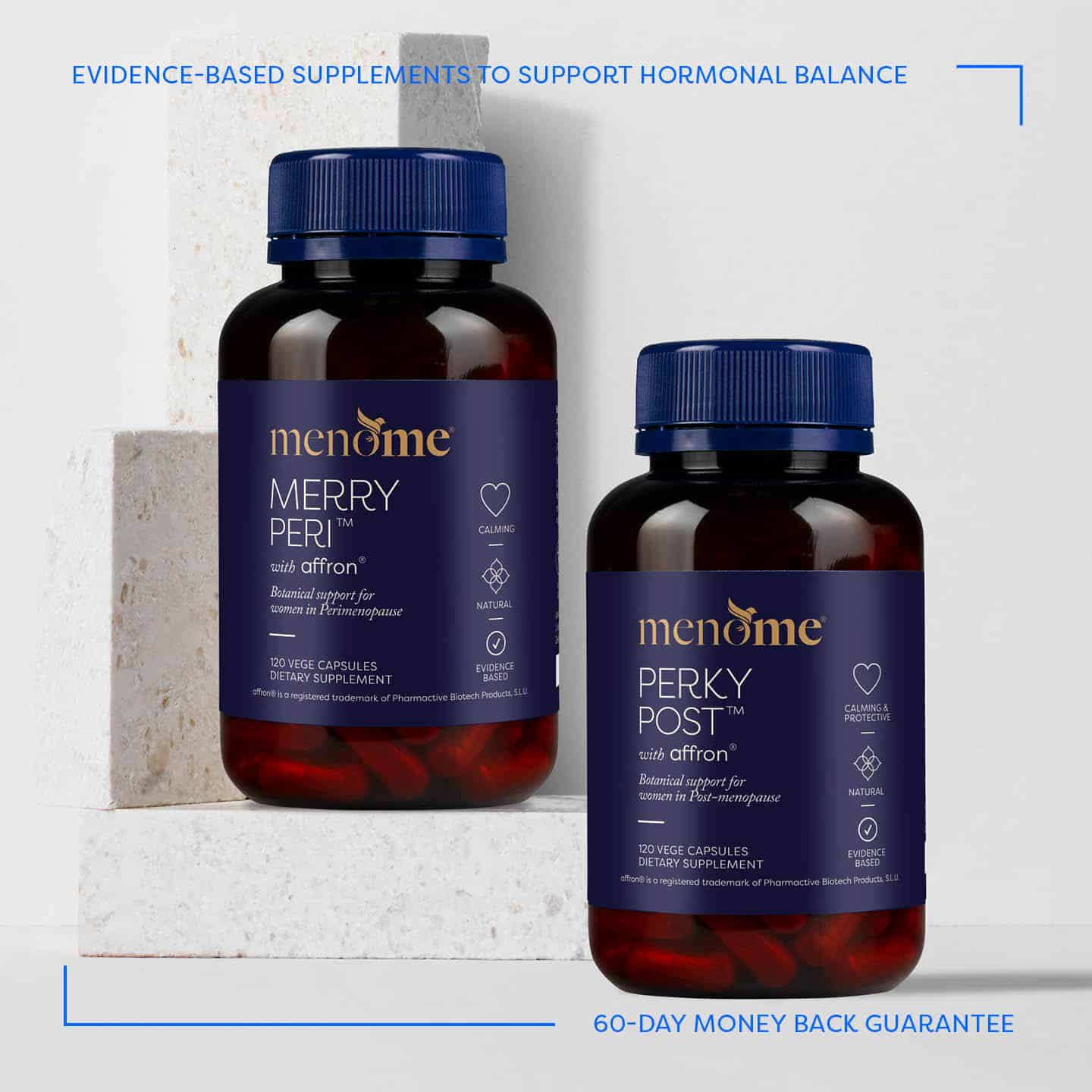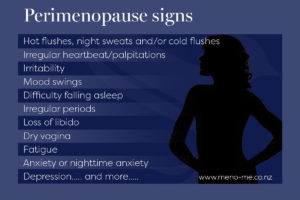Meet Clare McCall. She’s the busy CEO of an Auckland-based plumbing company and has over 35 employees working under her. Clare juggles many responsibilities such as taking charge in a male-dominated field, being a partner to Bino and running their household. In addition, she’s a changemaker who is actively changing women’s lives in Nepal through education and fundraising.
At 48, Clare is going through perimenopause as well.
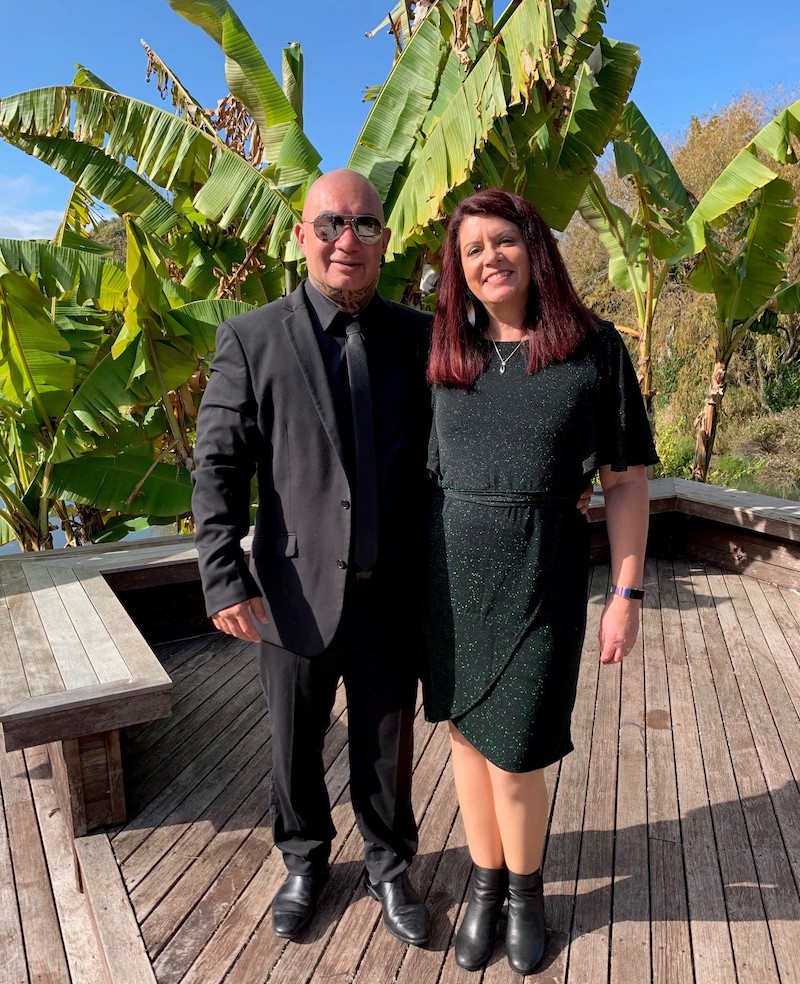
Perimenopause? What's That?
Clare had no idea about perimenopause even though she was going through medically supervised fertility treatment.
“The specialists told me I could be one of the women who get their periods regularly but don’t always ovulate. Medical testing said I had an 11% chance of fertility treatment working even with estrogen patches and other props. My estrogen had flatlined and my team said I should stop trying because menopause was probably just around the corner. But I wasn’t told what that meant or anything about perimenopause.”
Clare had always had heavy painful periods. “So I thought ‘well if nothing’s worked I’m quite happy for my periods to stop’ not realising that it wouldn’t be instant.”
Becoming Symptomatic
Thereafter Clare began experiencing many of common perimenopause symptoms like hot flushes and a frazzled brain. “Running a business with 35+ staff and having to always be at the top of my game when I felt like running for the duvet was challenging. And hot flushes in a meeting full of blokes are never fun. I met my partner 5 ½ years ago and I often think if only you’d known me before I became this crazy menopausal woman.”
How Clare Copes
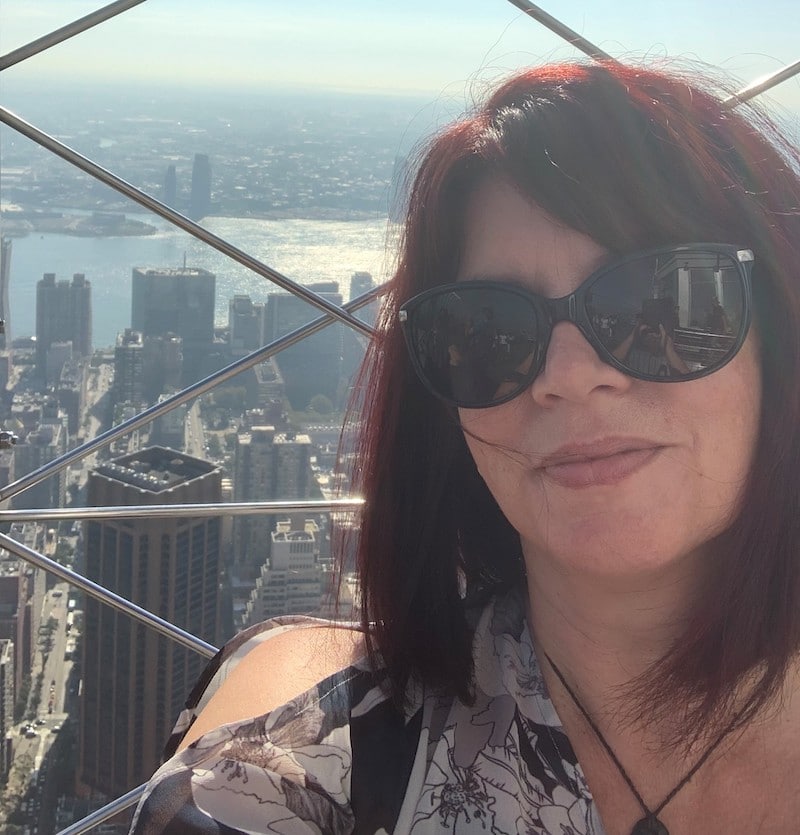
As someone who instinctively looks for solutions, Clare researched and read as much information as she could. “I realised I might have some thyroid issues as well. So I changed my diet, moved my exercise from Crossfit to Pilates and I try and spend time in nature. That helps a lot.”
(Ed’s note: thyroid issues are very common during perimenopause.)
“I was always very clear that I didn’t want to be medicated to manage menopause. My mum was on HRT patches for years and I didn’t want that. I found MenoMe® on Google and took it for six months and then I forgot to re-order. As I was feeling really good I stopped taking it and the hot flushes and other symptoms came back almost instantly. So I signed up for a subscription. MenoMe® has been a game-changer for me.
I like the sense of community as well. I’m not a big social media person but I look forward to the newsletter every week. It’s relatable and I see tips and think ‘that’s easy’ or ‘I hadn’t thought of that, I might try it’.
For me, there’s been a feeling of isolation going through menopause because everything seems to centre around being a mother. That said, I like that the subject of menopause isn’t behind closed doors like it used to be. People are starting to talk about it more.”
The Himalayan Leaky Foundation
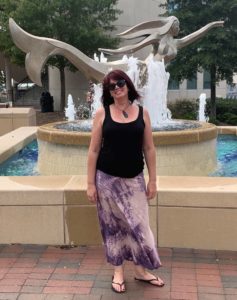
When Clare learned she couldn’t have children she took up charity work in Nepal. “I think that’s how I’ve channeled my grief,” she says.
Clare had been to Nepal as a backpacker in 1999 and had fallen in love with it. While re-visiting in 2009 she began helping out after the 2015 earthquake.
Then in 2017, together with Rabindra Tamang, she founded the Himalayan Leaky Foundation in memory of her father John McCall. John had founded the company Clare now runs and passed away five years ago.
In Nepal people struggle without healthcare or education, no water supply and a lack of sanitation. Furthermore homelessness after the earthquake is common and young boys and girls live in danger of being trafficked.
“It’s called the Himalayan Leaky Foundation because after the earthquake a lot of the water supply was cut off. We now have 20 houses where 60 people live and we’ve put in a water well. Additionally, we’ve just finished a project with Rotary where we put a seven-kilometre pipeline through the mountain. We also do a lot of work with women and children and have just rescued two teenage children from being trafficked. Their mother thought she was sending them off to work but they’re back with her now. When we discovered they were living in a mud hut we built them a house.
Women in Nepal are definitely ‘lesser’. We’re providing literacy classes and a lot of education so mothers don’t have to send their children to work.”
Clare's Answers To Our 'Your Story' Form
When did you first realise perimenopause had begun?
In my mid 40’s.
Did you understand what perimenopause (as opposed to menopause) was?
No, not until it was happening!
Did you feel you were too young?
Absolutely.
Were you shocked/surprised?
No, as I had realised my fertility issues in my early 40’s with the doctor letting me know menopause was just around the corner.
What has been a few of your major challenges?
Running a business with 35+ staff and having to always be at the top of my game when I just felt like running for the duvet! And hot flushes in a meeting full of blokes are never fun.
How did you overcome these if you have?
Lifestyle changes (diet, exercise, drinking less wine etc) but MenoMe® was the real game-changer for me.
What have you struggled with?
Heavy, painful periods. Down to about every 6 months now but it knocks me around!
Has there been a turning point for you at any stage?
Reading through many guides, articles etc was the major turning point (other than MenoMe®) to be at peace with the process, rather than struggling against it.
Do you understand this journey?
I certainly do now – after 3+ years.
Has MenoMe® contributed to your experience?
It has been a lifesaver for me. Both with the MenoMe® pills and all the information and caring community at MenoMe®.
Is there anything else you would like to add?
As a woman who has not been able to have children (and wanted them!), I have found the whole menopausal experience another ‘kick in the guts’ as it were. All the literature, blogs etc seem to be aimed at woman who have had children, so it has been quite a lonely experience in some ways, still feeling excluded from the process whilst going through the same experience.
